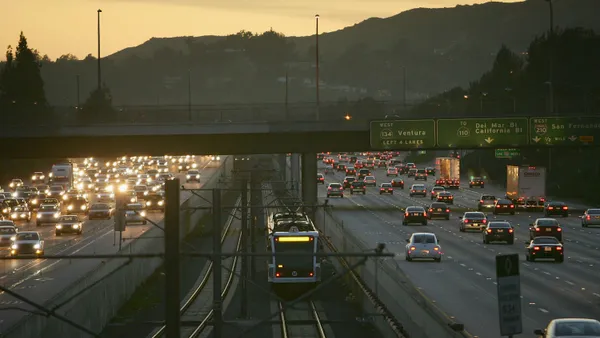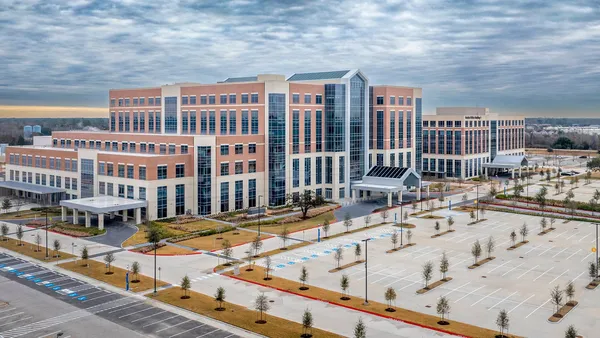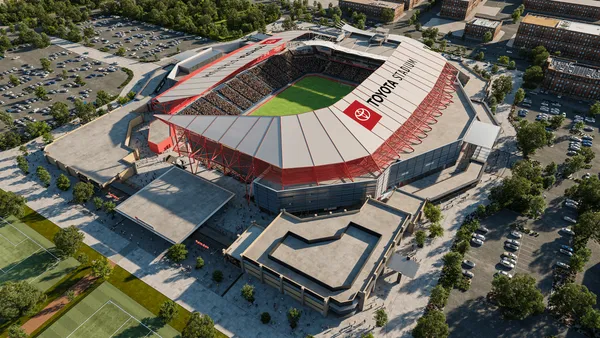Hoar Construction was founded in 1940 as a small, family-owned construction business, but has steadily grown to include nine offices located in five different states and, most recently, the District of Columbia.
But the D.C. market is competitive, rapidly growing, continually changing and not exactly easy to break into. Hoar, a company that claims it has never closed an office it has opened, was strategic when it came to their grand entrance.
“It wasn’t something they did quickly, they looked at the market for years,” Jeff Kruse, the newly appointed vice president of preconstruction in Hoar's D.C. office, told Construction Dive. Hoar has been building projects in and around Washington, D.C., over the years in preparation for a lasting entry into the market.
With the continued growth of the federal government and the public transit system, the D.C. market is “very strong and relatively consistent compared to all of the other markets across the country,” Kruse said. “To be a major player you want to hit some key markets, and D.C. is as good as anywhere in the country.”
As opposed to sending in a brand new team from headquarters in Birmingham, Alabama, Hoar took on a local team familiar with the industry in the area, hoping it would give them a competitive advantage. “The people that are starting this office are pretty well known entities around here. The contacts, the reputations, those tend to follow individuals,” Kruse said.
Hoar is hoping to begin their first major project in D.C., a multi-family residential building, in late summer or early fall. The project, known as Elysium 14, will be built at the corner of 14th street and Wallach in Northwest D.C.
If built, the final result will be a 56-unit apartment building. The project will combine the historic architecture of the two existing buildings that are being restored and renovated with the modern, refreshing design of a third building that connects the two existing buildings.
Hoar believes their "value-based culture" will give them an advantage over other large companies who are already a presence in D.C. Hoar makes a concerted effort to get involved with and give back to the communities it is working in. “It isn’t just about the construction piece -- if we’re building somewhere, we want to give back to the communities where we are," Kruse added. "I don’t know that I see that across a lot of different construction companies.”
The "value-based culture" was what drew Kruse's local group to Hoar in the first place. “We are a relationship-based group, we really value the communities where we build, and Hoar is exactly that," Kruse said. "So from a cultural standpoint it was a perfect fit.”
“They use technology in a fashion that isn’t just for show and presentation," Kruse said. "They use technology in a practical application that really helps projects succeed and that’s very refreshing to see.”
But Hoar recognizes that D.C., like any market, comes with its challenges. “It is a competitive market, there are a lot of good competitors out there that have widely recognized names in the region,” Kruse said. Clarke and Turner are among the big-name construction firms that Hoar will be competing with in the DC metro area.
Like most companies trying to break into competitive markets, name recognition is going to be one of Hoar’s biggest challenges. “I think it’s probably the same thing any new company would face in a city,” Kruse said. “It’s getting people familiar with Hoar Construction, getting people to understand that the values of Hoar Construction and the history of Hoar Construction matches the culture and reputation of this local group that has started the local office.”













